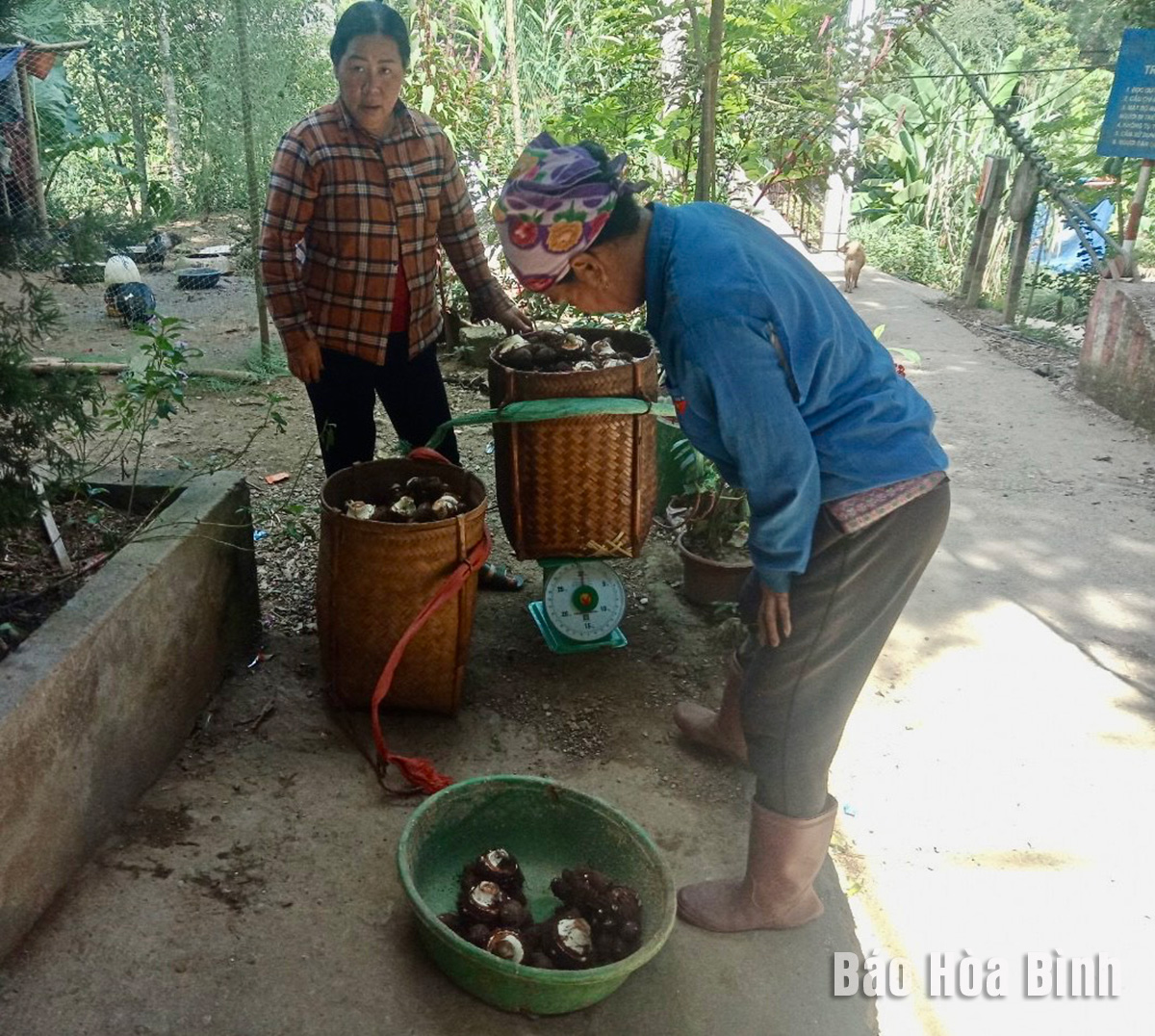
The start of winter also marks the harvesting season of taro in Son Thuy commune (Mai Chau district). The local tuber has gained popularity thanks to its good taste. It was granted the "Phuc San Taro" trademark by the National Office of Intellectual Property of Vietnam in 2020.
Cultivating taro brings good income for people in San Sop hamlet, Son Thuy commune (Mai Chau district).
Compared with taro grown in other localities, Phuc San taro is bigger and has better taste thanks to favourable weather and soil conditions. The area under taro cultivation in Mai Chau district has been expanding, contributing to raising the value of their agricultural production.
Dinh Van Thanh, who resides in Not hamlet, said his family has grown taro on 1ha of land since 2020. With guidance from agricultural extension staff, this year’s taro plants yield bigger tubers at larger volume than in previous years, he said, adding that the family has harvested more than 400kg of taro so far, earning over 13 million VND (about 535 USD).
Currently, the commune has nearly 20ha under taro cultivation, concentrated in San Sop and Not hamlets, with each ha yielding over 40 tonnes of tubers. Taro is harvested from late September to early January of the following year.
Ha Van Anh, a resident of San Sop hamlet, said that previously his family grew taro in a small area. However, they have expanded the cultivation area to nearly 2ha due to its price and popularity. This year, taro is sold at prices ranging from 25,000-40,000 VND per kg.
To turn taro into a key commodity product, the commune has been promoting the product on e-commerce trading floors, connecting with businesses that buy the produce and giving guidance to farmers on how to plant, harvest and preserve, ensuring the products meet safety standard, said Ha Van Duc, Chairman of Son Thuy Commune Farmers' Association.
In the coming time, the commune will continue to complete planning for production areas, help farmers to improve quality, output, and meet market demand. It will encourage people to expand taro cultivation areas and strive to build a sustainable trademark for Son Thuy taro.
It can be seen that the granting of "Phuc San Taro" trademark has boosted production and business development. Farmers have complied with the production process to ensure product quality, thus creating more jobs, and improving their income while contributing to hunger eradication and poverty reduction in the locality.
In Lac Thuy district, communes have been succeeded in promoting their One Commune-One Product (OCOP) products while others are still struggling to position their typical farming products in market. Some communes in the district still fail to have their products met OCOP programme’s requirements, while others have seen their certifications expired.
The inspectorate agency of Hoa Binh province has issued Official Dispatch No. 1090/TTr-PCTN to provincial departments, agencies, localities, business associations, enterprises, and investors regarding measures to improve informal component indexes of the Provincial Competitiveness Index (PCI).
Hoa Binh is taking concrete steps to improve its investment environment, with a strong focus on supporting businesses, settling obstacles for strategic investors, and creating opportunities for robust development in the coming years.
Under the blazing early summer sun, the construction site of Nhuan Trach Industrial Park (IP) in Luong Son district is abuzz with activities from dawn to dusk, a testament to the determination of the investor to meet their construction targets on schedule.



